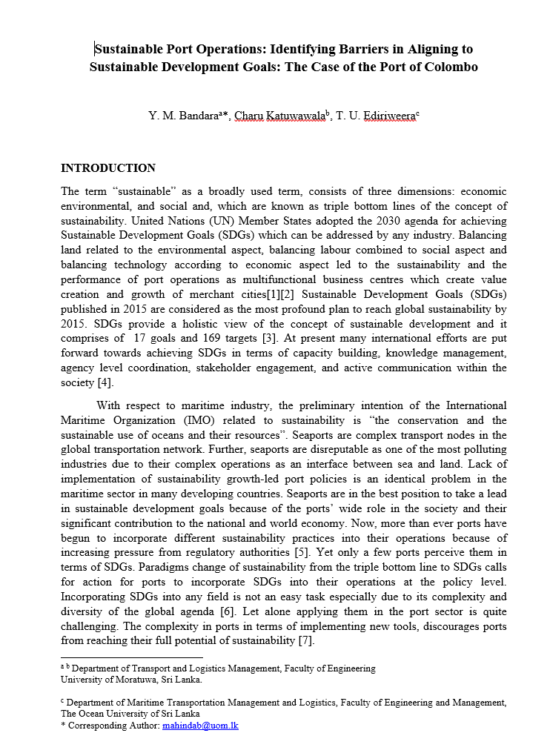Abstract
Sustainable development goals (SDGs) are considered as the blueprint to attain the ultimate objective of global prosperity by the year 2030. To accomplish that goal, all industries are striving to adopt SDGs into their regular business processes. As an industry that has a significant impact on the world at large, the maritime industry is also aligning its policies following the SDGs. Seaports play an integral role in the maritime industry. Due to their ability to influence both landside and seaside service operators, seaports are critical in achieving global sustainability.
Regardless of seaports’ importance, they have been relatively neglected in the 2030 sustainable development agenda. There are reasons for the apparent lagging behaviour of seaports. This study is dedicated to exploring the significant barriers that deter seaports from incorporating SDGs into their operational strategies.
The perception of the port managers was used as the basis for the research along with an extensive literature review. Exploratory Factor Analysis was employed to find the significant barriers. Further, the research also provides insights about existing Sri Lankan port practices that correspond with the SDGs. Thematic analysis and frequency analysis were also incorporated in the research to best describe the results.
The research revealed that primarily, four constraints discourage ports from implementing SDGs, namely, deficient collaborative policies, structural and managerial constraints, market constraints, and the absence of an established global framework for ports relating to SDGs. Further, the research also unveils how the port sustainability of a particular country could be affected by the overall country’s attitude towards sustainability.
Disclaimer
The views represented are those of the author(s) and do not necessarily reflect the views or policies of CILT.

